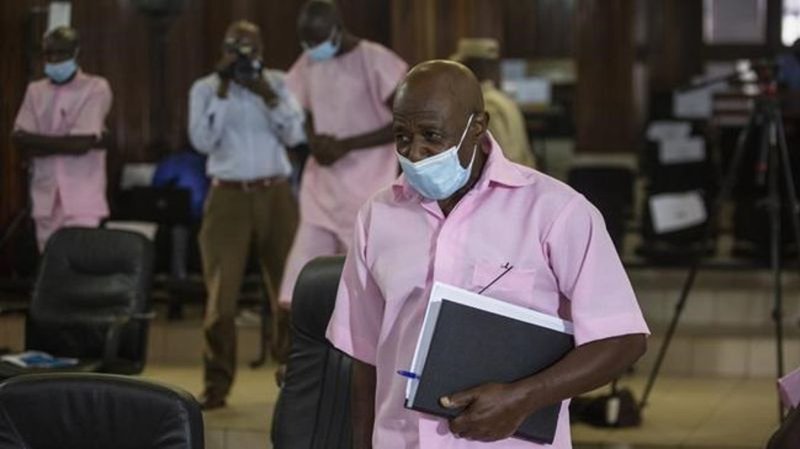
Freed ‘Hotel Rwanda’ hero Paul Rusesabagina arrives in US
HOUSTON (AP) — The man who inspired the film “Hotel Rwanda” and was freed by Rwanda last week from a terrorism sentence returned Wednesday to the United States, where he will reunite with his family after being held for more than two years, according to a person familiar with the matter.
Paul Rusesabagina’s arrival in the U.S was expected this week. White House National Security Council spokesman John Kirby told journalists on Monday that Rusesabagina was in Doha, Qatar and would be making his way back to the U.S.
Rusesabagina’s plane touched down in Houston Wednesday afternoon and he will travel next to a military hospital in San Antonio, said the person, who spoke on condition of anonymity to discuss
The 68-year-old Rusesabagina, a U.S. legal resident and Belgian citizen, was credited with sheltering more than 1,000 ethnic Tutsis at the hotel he managed during Rwanda’s 1994 genocide in which over 800,000 Tutsis and Hutus who tried to protect them were killed. He received the U.S. Presidential Medal of Freedom for his efforts.


